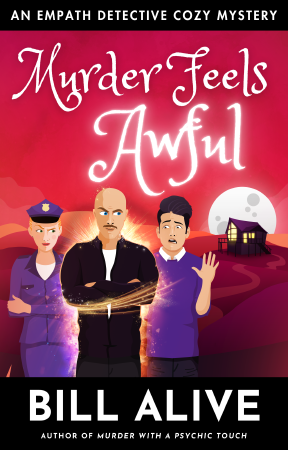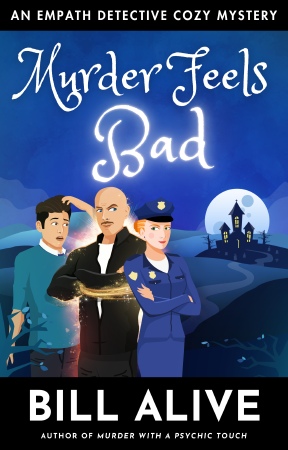What if you could totally skip your first draft?
All that stress, all that angst…POOF.
Want to know how? My pleasure. It’s all about this secret extra step in the plotting process.
For instance, here’s my current status on the Murder Feels Crazy novel challenge: this novel’s got five acts, and I’m on the last act in the “scene beat”.
What, you haven’t heard that before? 😄
"SCENE BEAT"? WHAT'S THAT?
Last week I promised to tell you about this magical “scene beat” plotting step that is, quote, “a fantastic method for both stress-testing your story and also tricking yourself into never exactly writing the First Draft”.
I don’t think I’m the only author to do this step, but I don’t hear about it much. A writer friend introduced it to me as the “blowthrough draft”, but I like to call it the “scene beat”, because for me, it’s all about figuring out the scenes and the beats within the scenes.
YOU'RE STILL NOT EXPLAINING IT
Basically, the “scene beat” is where I figure out what happens in each scene, beat by beat, without trying to write the real prose.
For me, a “beat” is a moment of the story – it could be a line of dialogue, a thought, a choice, or even an impression of a room or character.
So in the scene beat, I write a quick summary of almost every beat.
Instead of the actual description, I’ll note the main details (or, if I’m lazy, at least what will be described).
Instead of the actual dialogue, I’ll write what they mean. (Although I often wind up writing real dialogue that makes it into the final.)
Before I wrote this Empath Detective series, I would plot my stories on a large scale, but I wouldn’t figure out the actual beat-by-beat experience until I was actually in the trenches writing the prose.
In fact, I often hadn’t even figured out key aspects of the overall scene.
WAIT, WHAT _IS_ A "SCENE"?
I really hesitate to plunk down a definition of scene for you, but here’s a rough first try: a scene is a story unit in which a character struggles to get a goal and either does or doesn’t get it.
Once they definitively get it or not, you can feel the scene’s over.
Ideally, they’ve gotten themselves into worse trouble, creating a new, more urgent goal and thus a new scene.
It sounds simple, but you’d be amazed how many pages can meander by while the flailing author is trying to banter, describe, or interior monologue his way through those vast tundras of boredom that lurk between actual scenes.
SO IT'S EASIER TO DRAFT IF YOU KNOW WHAT HAPPENS FIRST?
Yes. I break it into two basic steps:
- Figure out what happens, in as much detail as possible.
- Then write it.
Actually, step 1 is a whole series of steps, starting way back with brainstorming and iterating through many steps before I’m ready to scene beat. And then there are revision steps after I write the first draft.
But the point here is: I don’t try to write the prose until I first know precisely what happens.
For me, those two steps are incredibly distinct. Separating them has made writing so much easier.
For one thing, writing snappy, spectacular prose is hard work. What if I spend a week slogging to get a chapter perfect, only to find out it needs to be cut? Sure, that might happen anyway, but wouldn’t it have been nice to at least do a complete plot check first?
The default process is to do everything at once. Figure it out as you go and write awesome prose. Which, for me, is a mess.
Now, lots of other writers do all kinds of plotting and planning. But many still leave so much yet to figure out when it comes to write the draft. What seems to be unusual is this specific, last step of a beat by beat plan. I literally jot out what’s going to happen in almost every paragraph.
BUT YOU SAID YOU "SKIP" THE FIRST DRAFT?
The fascinating thing is that, at this level of detail and imagination, the scene beat almost feels like I’m writing the first draft. And yet, there’s almost no stress, because I know that it’s not the actual prose yet. It can be as sloppy and slapdash as I please.
Then, when I return to write the draft, there’s so much detail in the scene beat that it feels like I already wrote the draft. Like the scene beat is the first draft … exceedingly sloppy, yet strangely streamlined. It’s easy to cut from a scene beat, because I didn’t do the work to make the prose nice.
So all I have to do is write it properly. Which, it turns out, is mostly sheer pleasure, because the hard parts are already figured out.
Do you see the sneaky genius here? I never actually “write the first draft.” I dodge that legendary stress both ways.
During the scene beat, I tell myself the actual first draft is still to come.
During the first draft, I tell myself the scene beat was the first draft, and now I’m just rewriting.
I love this.
If you’re at all into writing, you’ve got to give this a try.
BUT WHEN ARE YOU GOING TO ACTUALLY _WRITE_ THIS DRAFT???
Like I said at the top, I’m still in the scene-beat, but on the final act of five. By the time you hear from me next Tuesday, I hope to have started the actual draft.
Which means … then I’ll write a 70,000+ word first draft in only two weeks?
Well … maybe…
I’ll keep you posted. Thanks again for sharing this adventure with me. Happy reading! See you next week!
![[Bill Alive]](/images/authors/bill_alive_200x_mangos.png)
Bill Alive
P.S. Wait, did you skip to this P.S. without reading about the “scene beat”? Go back up, you’ve got to check this out. :) And if you’re a writer yourself, I’d love to hear about your writing process and what you think of this “scene beat” approach. Thanks!

